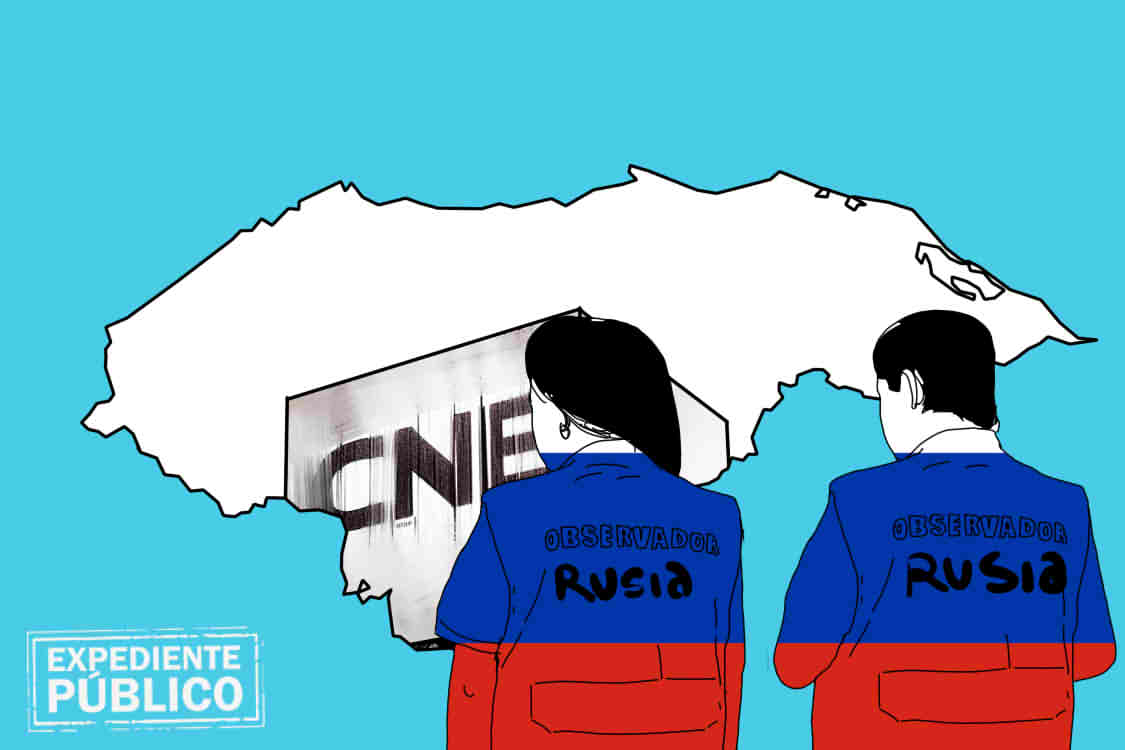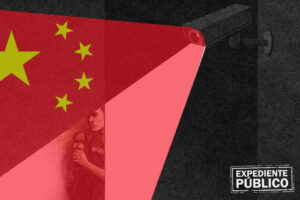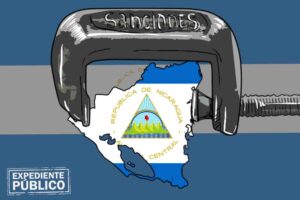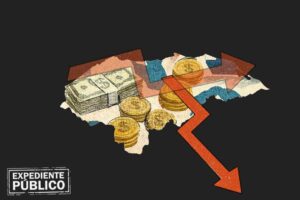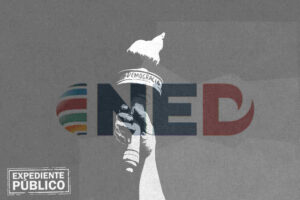*Experts agree that Russia seeks to have allied left-wing regimes in the region to achieve a better geopolitical position vis-à-vis the US.
**Analysts question Russia’s credibility as a country without transparent democratic processes and with a leader accused of war crimes.
*** The Russian delegation could seek to undermine reports from independent organizations such as the OAS, the European Union, and the Carter Center.
Sharon Ardon / Expediente Público
Russia does not adhere to the Western democratic system. Several international organizations have criticized the Russian government for not holding free elections and persecuting independent observers. Despite this, for the first time in history, Russia has requested Honduras’ approval to participate as an observer in the general elections on November 30, 2025.
Amidst a war with Ukraine and a history of Russian influence that legitimized disputed elections in Venezuela and Nicaragua, the possible entry of Moscow observers into the Honduran electoral process has generated controversy in the country’s political sphere.
The Embassy of the Russian Federation submitted the request on August 28 to the Honduran Foreign Ministry, which forwarded it to the National Electoral Council (CNE) on September 16. The CNE has 10 business days to decide whether to allow the presence of these observers.
Subscribe to the Expediente Público newsletter and receive more information
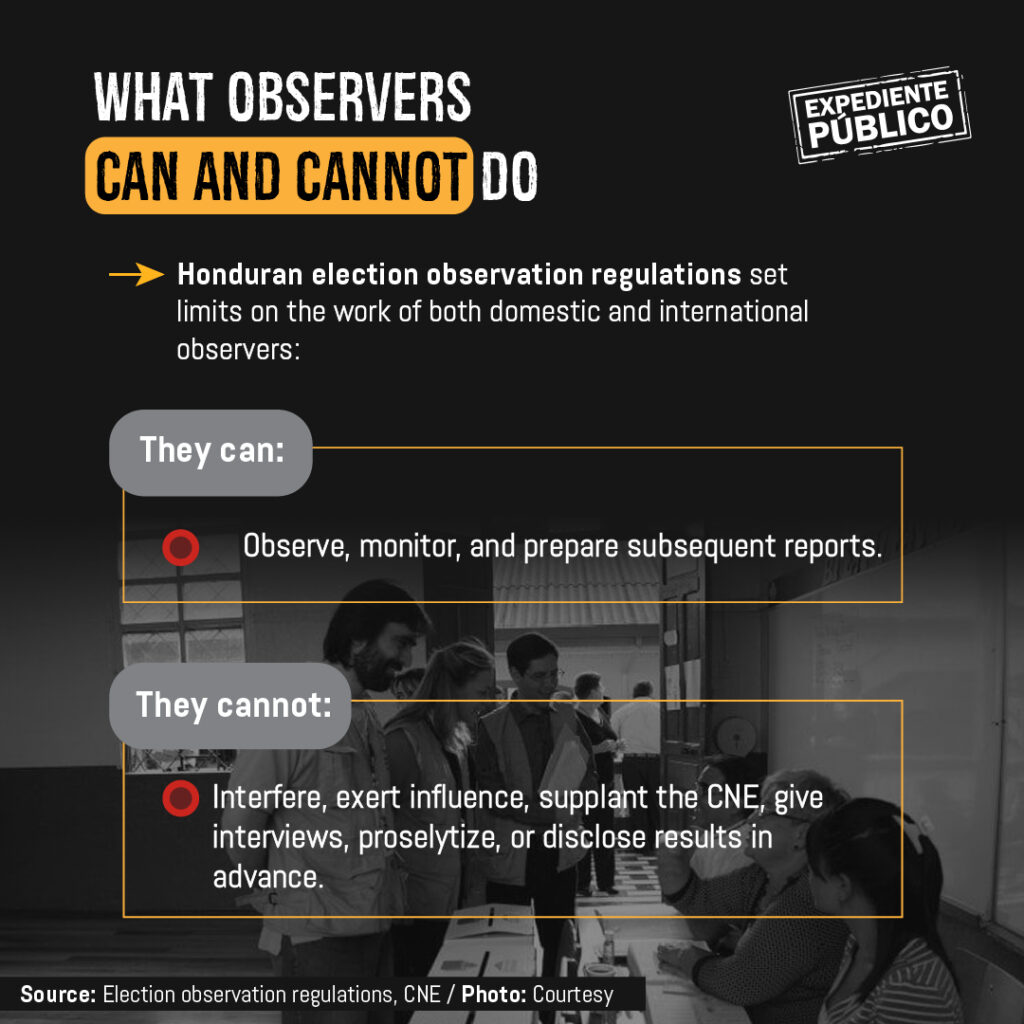
Through this request, Russia seeks to project the image of a respectful and non-interventionist country, but this narrative «may divert attention from what it can do behind the scenes,» Argentine journalist and international relations specialist Ludmila Gonzalez warned Expediente Público.
You may be interested in: Sara Gálvez: Russia exports its manual for capturing the state
Russia’s strategic narrative
González, who has more than a decade of experience analyzing the influence of China and Russia in Latin America, told Expediente Público that Russia’s request may be a narrative strategy to portray itself as a country that «respects its peers» and «does not interfere in the affairs of third parties,» when the reality is quite different.
The expert pointed out that Russia has set its sights on Latin America because its neighbors in Eurasia are already familiar with the Kremlin’s maneuvers and are more wary.
That is why, she added, Russia has already become involved in Venezuela, Cuba, and Nicaragua and has shown interest in Bolivia, presenting itself as an actor that wants to «contribute to electoral transparency.»
What is the interest in Honduras?
In the case of Honduras, experts agree that Russia’s request is not an isolated gesture, but part of a geopolitical positioning.
«It wants to play it quiet, but that quiet play has geopolitical aims that are not in favor of Honduran society; it is to exercise control. It is another link in Russia’s macro positioning strategy,» said the Argentine expert.
Along the same lines, Honduran analyst Luis León pointed out that Moscow’s gamble also responds to its interest in the results.
«Russia is betting on a left-wing government, and the United States on a right-wing one. Honduras is caught in the middle. It’s not that Russia or the United States care about Honduras as such, but rather its geopolitical position,» León told Expediente Público.
Opening the door to strategic sectors
González believes that accepting this Russian delegation could risk «opening the door to greater Russian interference in the region.»
According to the analyst, a favorable resolution could have repercussions on Honduras’ susceptibility to Russia. «Accepting Russian observers does not bring any clear benefits to Honduras. Rather, it may entail political and geopolitical costs,» she said.
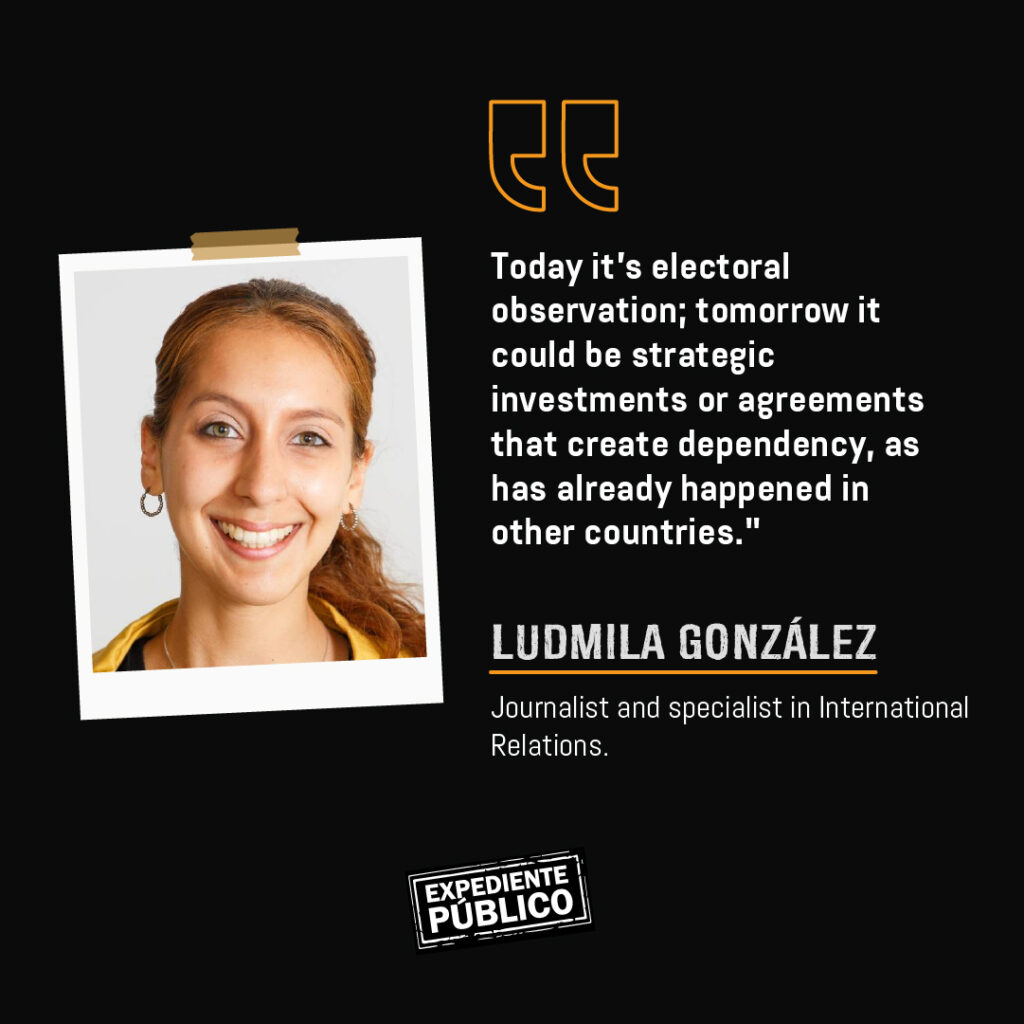
In addition, González pointed out that Russia’s appointment as an observer could lead to a closer relationship involving Russian investment in strategic areas such as defense, infrastructure, or technology, increasing dependency, as has already happened in other countries.
The ‘undemocratic’ observer
For the experts consulted, it is contradictory that Russia seeks to be accredited as an observer of democratic elections when its president, Vladimir Putin, has been in power for more than 25 years.
«In Russia, there are no free elections. Opposition candidates have no chance of participating, only those who are part of what is called the ‘systemic opposition,’ a controlled opposition,» Russian expert Vladimir Rouvinski told Expediente Público.
Rouvinski is director of the Laboratory of Politics and International Relations at the Colombian Institute of Higher Studies of Incolda (Icesi).
Organizations such as Amnesty International and Transparency International have denounced how, within Russian territory, the government persecutes national observers and restricts minimum guarantees of transparency.
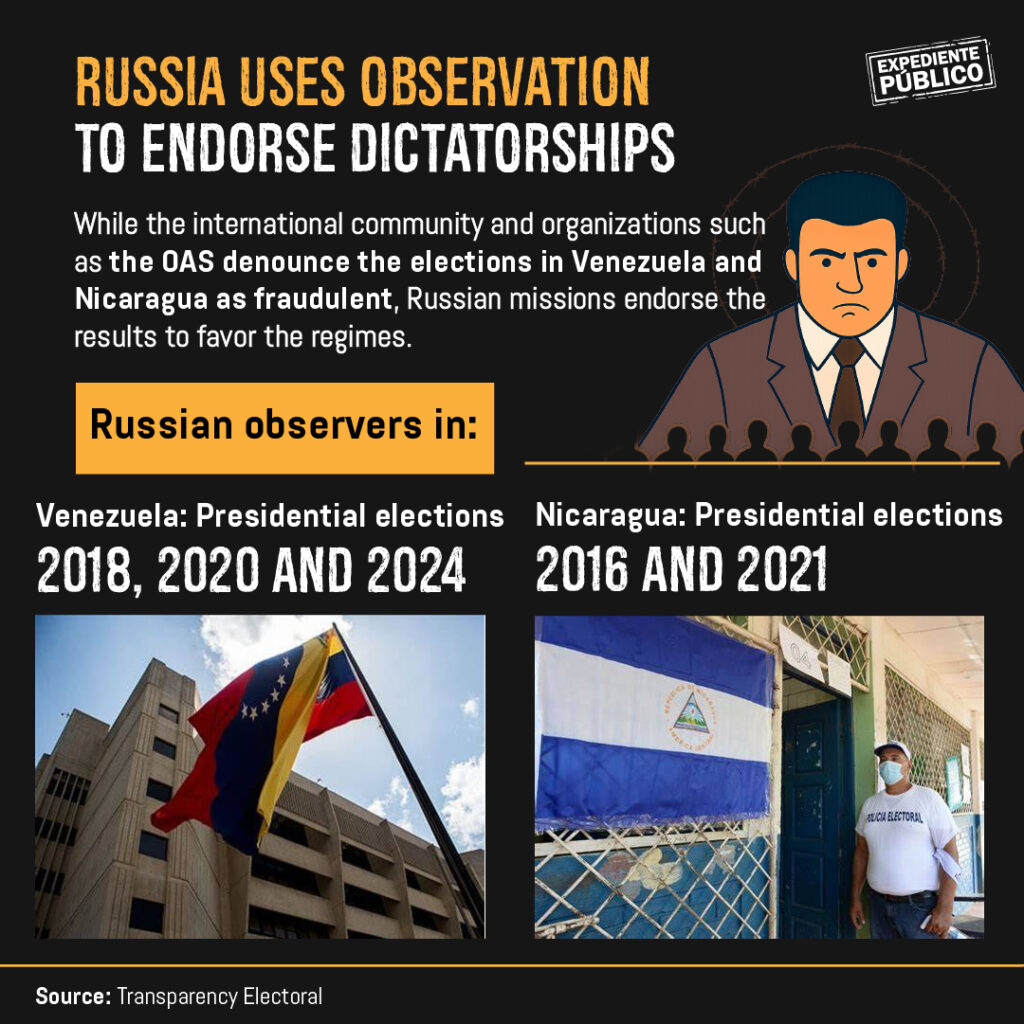
Such is the case of Grigory Melkonyants, a Russian civil society activist who, for more than two decades as an observer, documented irregularities in the elections. He was arrested in August 2023 and sentenced to five years in prison for participating in activities with what the Russian state considers «undesirable organizations.”
International relations expert Graco Pérez asked Expediente Público, “How can a country that invaded another democratic country and whose leaders face accusations of war crimes be invited as an observer?”
He recommended to the CNE councilors that, despite the diplomatic relations between Honduras and Russia for more than 33 years, «they should act autonomously with the benefit of the electoral process in Honduras in mind.»
You can read: Siegfried Herzog: Russia and China give dictatorships enough to survive
What can Russia contribute to the electoral process?
Rouvinski sees no benefit in Russian observers participating. He explained that Russian observers often limit themselves to verifying that people voted, without analyzing whether the basic electoral conditions existed.
In his view, democracy is not limited solely to voting but encompasses the proper conduct of the entire electoral process. «To talk about free elections, we must observe all stages,» he stated.
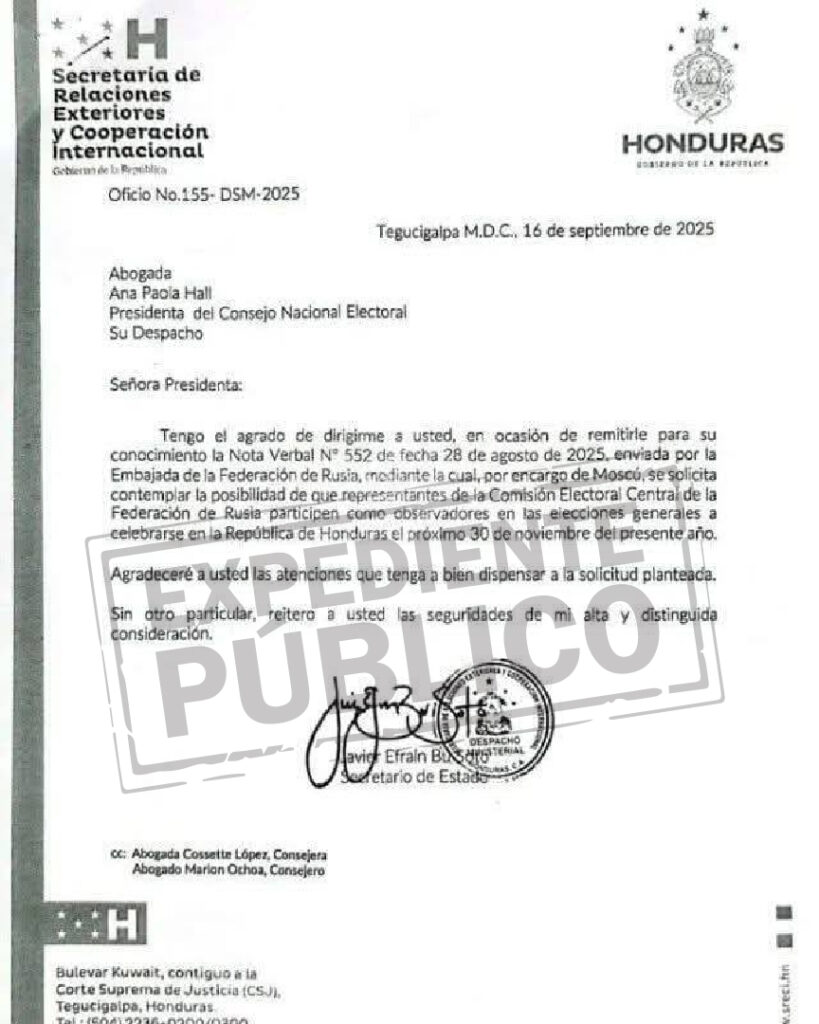
Support for disputed elections
Russian observers endorsed Venezuela’s presidential elections in 2018, 2020, and the 2024, despite clear evidence of fraud, simply noting that people turned out to vote.
Russian Foreign Ministry spokeswoman Maria Zakharova validated the May 25 process in Venezuela, noting: «According to the testimony of international observers, including the Russian delegation, (…) the elections were conducted in an organized manner, at a high level, without violations.»
The Russian delegation did the same in Nicaragua, in the 2016 and 2021 presidential elections. Russia is one of the most loyal allies of the dictatorship of Daniel Ortega and Rosario Murillo.
Also: Trump faces the challenge of Russian, Chinese, and Iranian influence in Central America
Weakening multilateral organizations
In addition, according to academics, another strategy that Russia may employ is to help authoritarian governments counter reports from independent observers such as the European Union, the Carter Center, and the Organization of American States (OAS).
«Governments that are attempting or committing fraud are looking to use the reports of Russian observers to counter the reports of the OAS or other independent observers,» Rouvinski said.
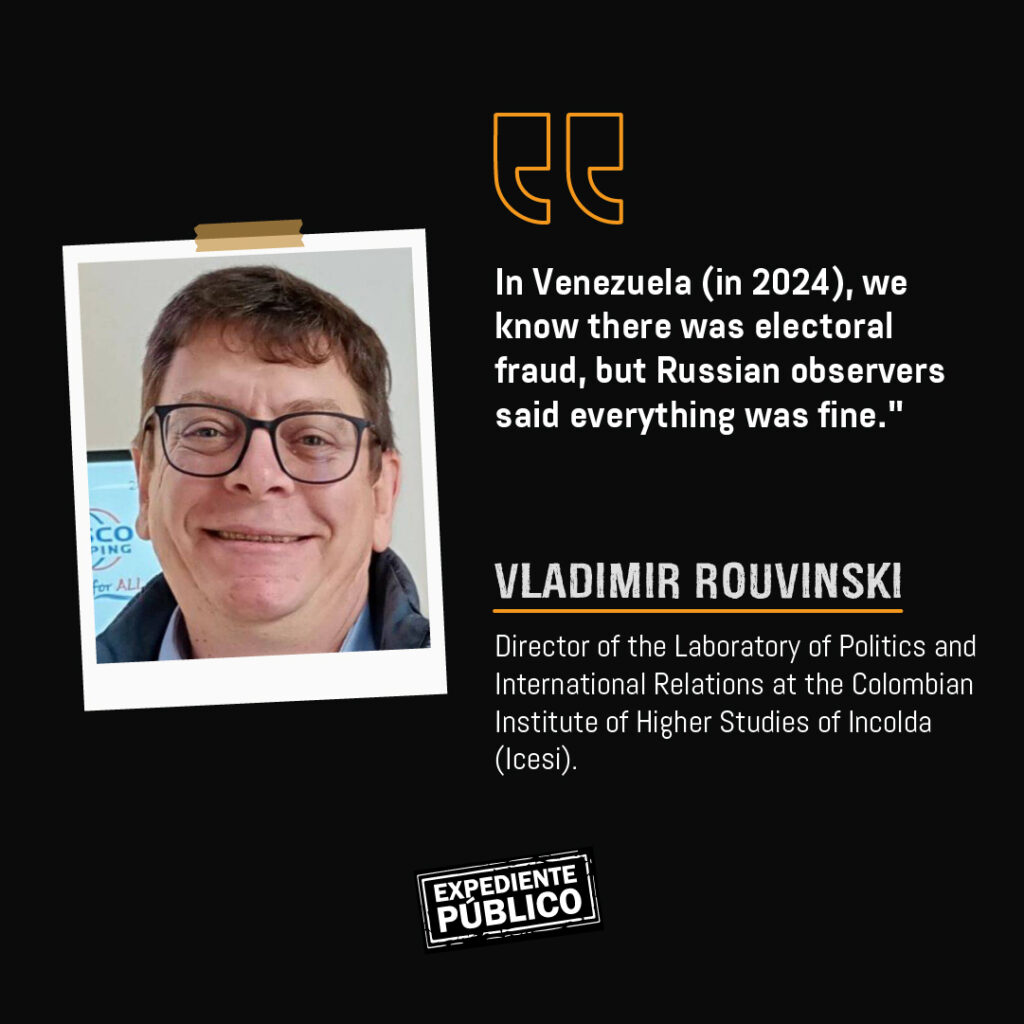
González added that Russia may be taking advantage of the funding problems these independent organizations are facing.
Also: The end of USAID: a triumph for Russia, China, and authoritarians
«Funding cuts also serve Russia—and other regimes—to advance these types of symbolic gestures that are actually geopolitical strategies,» González concluded.

